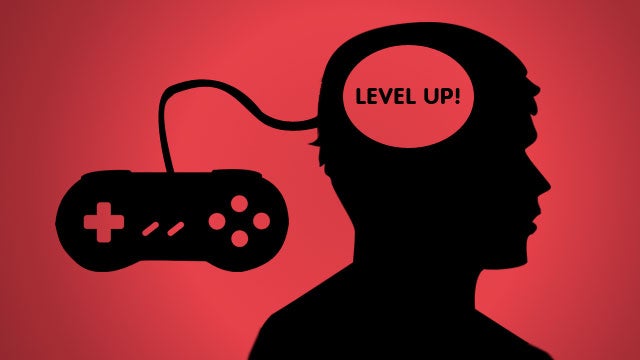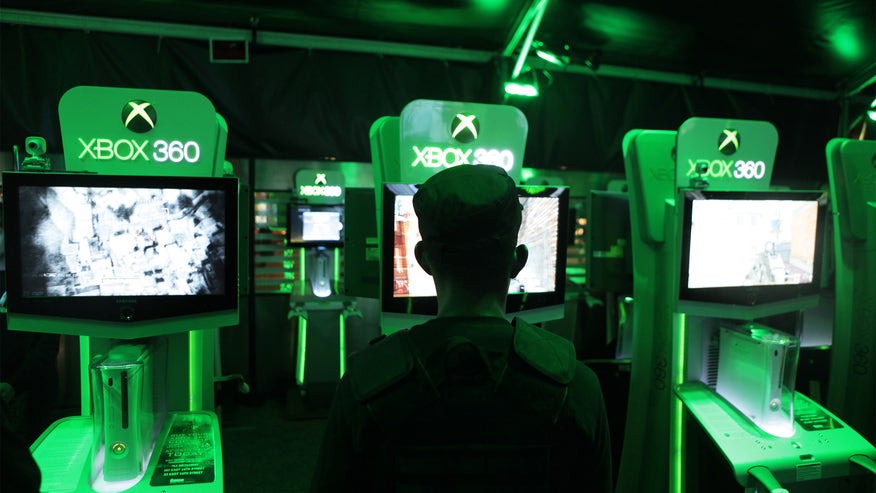
今年秋季,新的視像遊戲 – 現在不只是用遊戲機才能玩, 它已經移植到您的iPhone裡面 – 剛好為假期做好了準備。一個12歲的渴望恐怕已經不是一盒LEGO積木了, 而是Xbox One的遊戲。其中索尼的PlayStation4新遊戲叫做“小小大星球3”是最有趣的,從11月18日玩家必須找出如何解決問題的解決方式去過關。更重要的是,他們可以利用空間推理去設計自己的水平。
This fall, a rash of new video games -- from shooters to platform jumpers to complex mind- One of the most interesting new games is called “Little Big Planet 3” for the Sony PlayStation4, out November 18. Gamers have to figure out how to problem-solve their way through each level. More importantly, they can design their own levels using spatial reasoning.benders on your iPhone -- will all debut just in time for the holidays. A 12-year-old is probably not craving a LEGO set any more. What kids today want are Xbox One games.
And, of course, there will be shooters -- from the military themed “Call of Duty: Advanced Warfare” (out in about two weeks) to “Bayonetta 2 for Nintendo Wii U,” out Oct. 24.
There’s an age-old debate, however, about how these games impact both adults and kids. Can “Halo” or “Bejeweled” actually help improve brain capacity, stimulate new ideas, help you solve real-world problems, and even make you smarter?


Chris Ferguson, a professor at Stetson University and a leading expert on video games who completed a landmark study in 2012 on whether violent games lead to violence in real life, said there are some examples of video games impacting how we think. One study even suggested that first-person shooters could help surgeons improve their skills.
However, Ferguson said some of the claims about games making you smarter are exaggerated.
“I have not found much evidence that playing video games is strongly associated with subsequent math or visuospatial skills, either for better or worse,” he said. “Video games are just entertainment. They really just don’t do profound things to our brains.”
 Dr. Gayani DeSilva, a child psychologist, agreed, and said that some studies have shown how video games “improve visual processing capabilities, improving hand-eye coordination, and visual spatial relations when playing action video games.”
Dr. Gayani DeSilva, a child psychologist, agreed, and said that some studies have shown how video games “improve visual processing capabilities, improving hand-eye coordination, and visual spatial relations when playing action video games.”
“Another study supports increased ability to observe and distinguish between visual field distractors such as knowing how many objects are on a screen without actually counting each one,” DeSilva added.
At the same time, DeSilva said we just don’t know enough about brain development yet to give a definitive answer. For parents, there are some guidelines. She said it’s an accepted medical finding that young children should not play video games for more than 20 minutes per day and toddlers under two should not play them at all.
“It is important to note that young children (under age 12) have difficulty distinguishing fantasy from reality,” she said.
Unlike Fergusson and DeSilva, Dr. Fran Walfish, a clinical psychotherapist who treats patients for video game addiction, said playing the games can prove detrimental to users.

“After seeing hundreds to thousands of kids become fascinated with video games I can attestto the observation that video games are not good for your brain,” Walfish said. “On the contrary, they train the brain to 'tune out' other stimuli and variables by forcing the video game activity into the foreground and push out everything else.”
She added that games condition the brain to expect an immediate response. In normal human-to-human contact that expectation for immediacy is unrealistic, Walfish said.
Walfish said she does believe that some puzzle games like “Little Big Planet” do help people with spatial thinking and problem-solving. These games can foster quick thinking, perseverance, and fine motor skills. However, Walfish also said that these games can make people more impatient.

“It is counter-productive and unhealthy for [kids] to focus tunnel-vision rapid eye- movements on a singularly concentrated small box that shuts out all human interaction,” she added.
In the end, both sides of the debate agree that there is no definitive proof that games like “Call of Duty” or the Activision shooter “Destiny” damage the mind.
Ferguson said it is rather alarmist to suggest that video games can have a significant positive or negative impact on players' brains.
“Video games just haven’t done much to influence children, either for good or bad,” he said.
** Credit to John Brandon published October 24, 2014 on Foxnews.com
Original Article: http://www.foxnews.com/tech/2014/10/24/do-video-games-help-improve-mental-capacity/